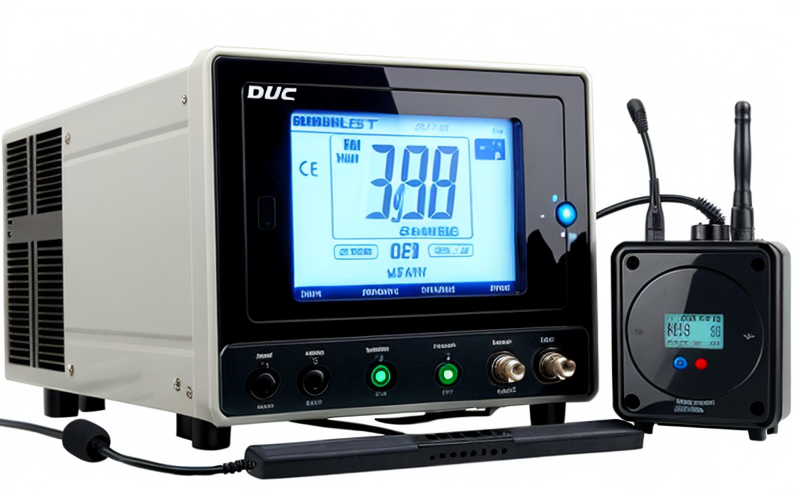3GPP TS 38 101 5G NR User Equipment RF Testing
The 3rd Generation Partnership Project (3GPP) Technical Specification 38.101, titled "User Equipment (UE) Radio Transmission and Reception," is a crucial document in the development of Fifth-Generation New Radio (NR) standards. This specification outlines comprehensive testing procedures for ensuring that user equipment adheres to the stringent radio frequency (RF) performance criteria set by the global telecommunications industry.
Our 3GPP TS 38 101 5G NR User Equipment RF Testing service is designed to help manufacturers and R&D teams meet these rigorous standards. We employ advanced testing equipment and methodologies to validate the RF performance of user devices, ensuring they comply with both international and regional specifications.
The testing process involves several key steps: initial setup, signal generation, power control, waveform measurement, frequency band validation, and interference testing. Each step is meticulously executed to ensure accurate results that align with the latest 5G NR standards as defined by TS 38.101.
One of the most critical aspects of this service is the use of real-world simulation environments. We create scenarios that mimic actual network conditions, allowing us to assess how your device performs under various RF challenges such as signal fading, multipath interference, and channel impairments. This approach ensures that your product not only meets laboratory test requirements but also functions reliably in real-world deployments.
The testing equipment we utilize includes high-precision vector network analyzers (VNAs), spectrum analyzers, signal generators, and software-defined radios (SDRs). These tools enable us to perform a wide range of measurements including amplitude and phase stability over time, frequency response, harmonic distortion, spurious emissions, and more.
Another important component of our service is the analysis of test data. Our team uses sophisticated algorithms and statistical methods to interpret results, identifying any discrepancies between your device's performance and the required specifications. This allows us to pinpoint areas for improvement and recommend necessary adjustments before final certification.
We also provide detailed reports summarizing all aspects of the testing process, including raw measurement data and interpreted findings. These reports serve as valuable resources for quality assurance teams, R&D departments, and procurement managers responsible for ensuring product integrity and compliance with industry standards.
By leveraging our expertise in 3GPP TS 38.101 compliant RF testing services, you can gain confidence that your user equipment will perform reliably across diverse network environments. This is particularly important given the rapid evolution of wireless technologies and increasing demand for seamless connectivity solutions worldwide.
Benefits
Engaging with our 3GPP TS 38 101 5G NR User Equipment RF Testing service offers numerous advantages, including:
- Compliance Assurance: Ensures your user equipment meets all relevant international and regional standards.
- Reliability Enhancement: Identifies potential issues early in the development process, leading to more robust designs.
- Competitive Edge: Demonstrates commitment to quality, enhancing brand reputation and customer trust.
- Avoidance of Penalties: Prevents costly rework or product recalls due to non-compliance.
- Time Savings: Streamlines the certification process by providing detailed insights into necessary adjustments upfront.
- Precise Data: Offers comprehensive reports supported by accurate, reproducible measurements.
These benefits collectively contribute to a more efficient and effective product development lifecycle, ultimately resulting in better-performing products that can compete successfully in an increasingly demanding market environment.
Quality and Reliability Assurance
At the heart of our 3GPP TS 38 101 5G NR User Equipment RF Testing service lies a robust commitment to quality assurance. We adhere strictly to ISO/IEC, ASTM, EN, and IEC standards throughout every phase of testing.
The process begins with meticulous setup, ensuring that all equipment is calibrated according to the latest calibration protocols. This precision sets the foundation for accurate subsequent measurements. Signal generation plays a pivotal role in this step; our systems are capable of producing wideband signals across multiple frequency bands defined by 5G NR specifications. Power control ensures consistent signal levels during transmission tests, while waveform measurement captures detailed information about signal quality and integrity.
Frequency band validation is another crucial element. It involves verifying that your device operates correctly within all specified frequencies, which can vary depending on geographical location or intended market region. Interference testing simulates real-world conditions where multiple devices share the same spectrum, helping to ensure compatibility and prevent interoperability issues.
Data analysis is performed using advanced software tools capable of handling large datasets efficiently. Statistical methods are applied to identify trends and outliers, providing actionable insights for improvement. Reporting follows strict guidelines outlined in relevant international standards, ensuring clarity and consistency across all documents produced during the testing process.
Environmental and Sustainability Contributions
In today's environmentally conscious world, it is essential that our services contribute positively to sustainability efforts. By providing accurate, reliable RF testing for 5G NR user equipment, we help manufacturers design products with lower environmental impact while maintaining high levels of performance.
The tests conducted under this service can lead to more efficient device designs, reducing power consumption and heat generation. This not only extends battery life but also decreases the overall energy footprint associated with manufacturing and operating these devices. Additionally, by ensuring robust performance early in development cycles, we help prevent unnecessary production runs that could result in wasted resources.
We are committed to continuous improvement in our practices, striving to minimize waste and optimize resource usage at every stage of the testing process. Our dedication extends beyond just technical aspects; we also work closely with clients to promote sustainable business practices throughout their supply chains.





